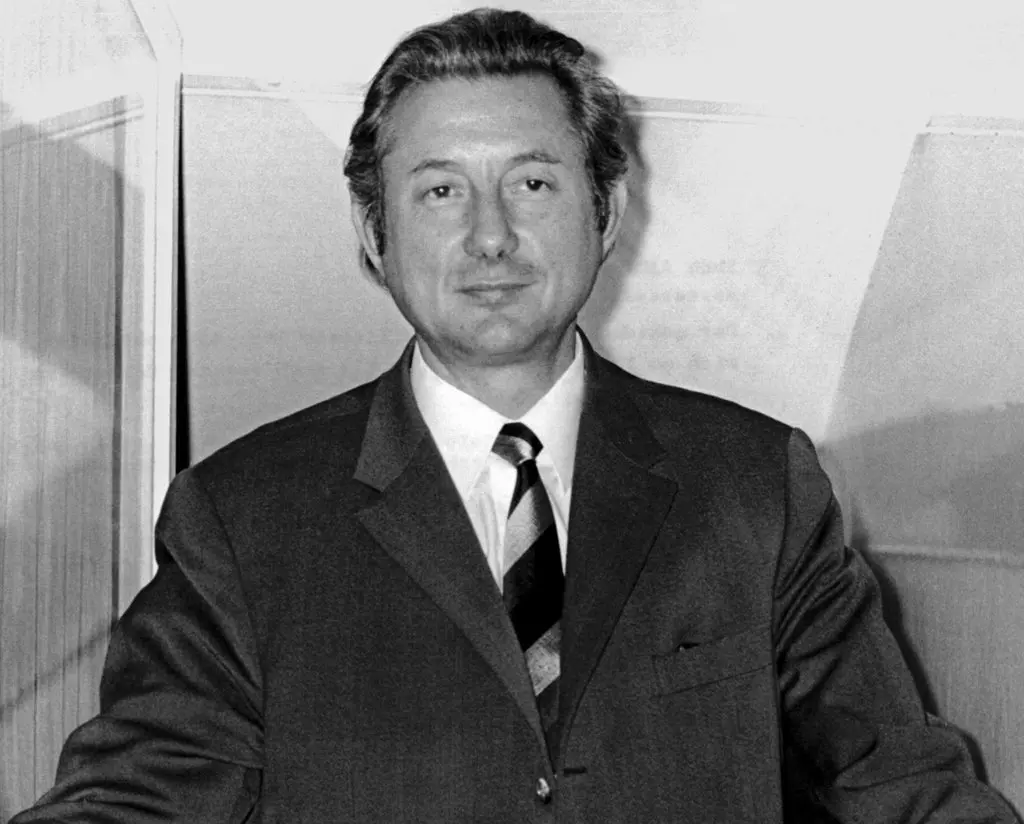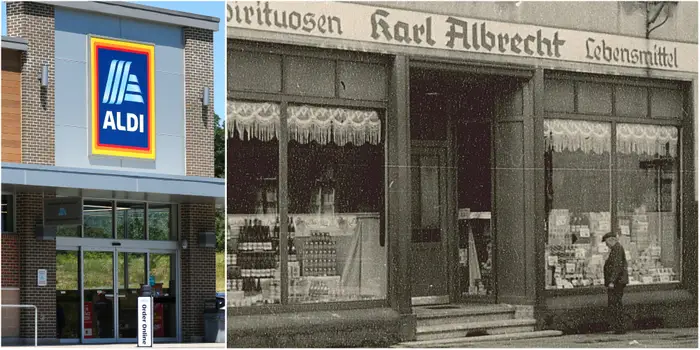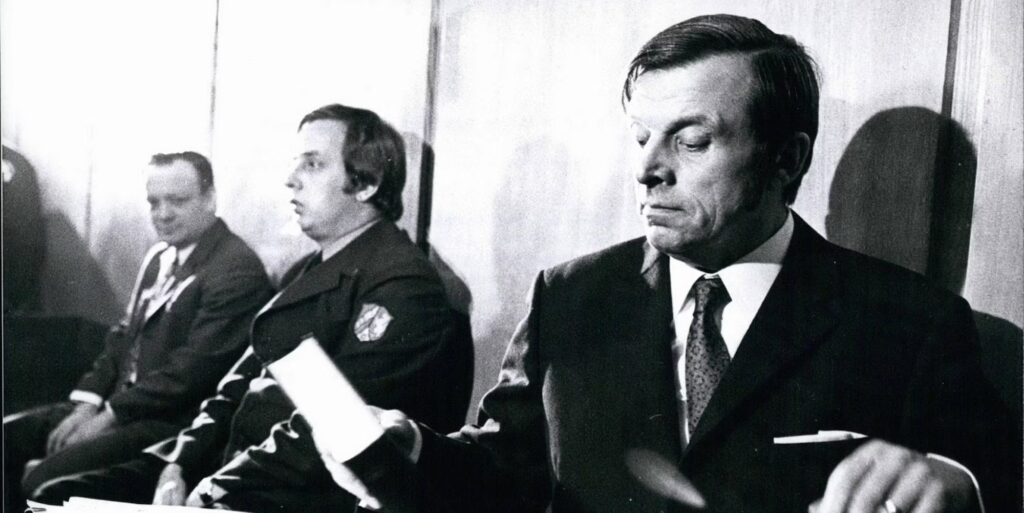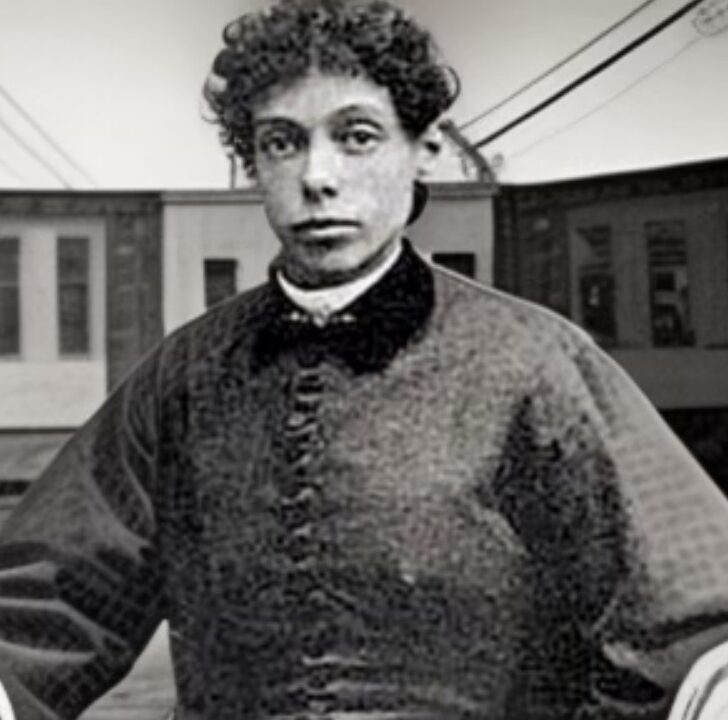There are few grocery store chains that are globally recognized, but one of the most notable is Aldi, the low-price grocery outlet where you use a quarter to get a shopping cart, and you have to bring your own bags to carry your groceries home.


With over 7600 stores worldwide, including over 4100 in Germany and over 2000 in the United States, Aldi stands as an instantly recognizable international brand.
Yet its owners, the Albrecht family, are notoriously mysterious and avoid the public eye at all costs, even keeping the business private.
This withdrawn behavior is deeply related to the fact that in 1971, one of the co-founders and CEO of Aldi, Theo Albrecht, was abducted and held for ransom for over half a month.
Childhood In The Albrecht Family
Theodore Albrecht was born in Essen, Germany, on March 22, 1922, to a miner and a shop owner. He and his brother, Karl, worked with their mother in her store and learned how to run a business from a young age.
The store was the main source of income for the family after the boys’ father was diagnosed with emphysema from working in the mines, a debilitating development for the family that served as an inspiration for the boys to master the store’s operations in the hopes they could avoid the same fate.
The Interwar Years Through World War II
During the 1930s, as the boys came of age and began learning to run the store, Germany was facing an unprecedented depression. The economic slump was the result of a global depression compounded by the harsh economic sanctions imposed on Germany following the First World War.
In 1923, the price of bread in Germany rose from 163 marks to over 1.5 million marks in less than a year as a result of hyperinflation.
Attempting to operate a shop during such a tumultuous economic period was a complicated and difficult experience, but it taught Theo and Karl the importance of a thrifty shopping experience.
Both brothers continued to learn how to run their shop until they were conscripted into the Nazi Army during the early wars of World War II.
Theo was dispatched to Northern Africa, where he was captured in Tunisia. Karl was injured on the Eastern Front, but both brothers returned to Germany in 1946.
Upon returning to Ressen, the brothers found that the town was decimated. A Nazi munitions factory had been blown up, but their mother’s shop was still standing. This allowed them to return to their normal lives as shopkeepers.
How The Albrecht Brothers Amassed A Fortune
Unbeknownst to the brothers at the time, their mother’s small shop would evolve into a multi-billion dollar venture that would propel them into billionaire-hood.

The brothers focused on selling products with the smallest amount of overhead possible. In the early years, their stores sold only a small pool of products because the supply of products in postwar Germany was limited due to the growing Cold War tensions.
While most businesses would see this as a drawback, the Albrechts took on the challenge and made it a facet of their business, making a minimalist shopping experience the heart of the venture.
Rather than fancy displays for products, groceries sit in cardboard boxes atop piles of wooden pallets or cheap shelving.
And instead of offering free bags to customers to place their groceries in, the store encourages customers to bring their own bags or utilize boxes that have been emptied and left on the shelves.
To prevent shopping cart theft, a common issue nowadays, stores require the customer to unlock the cart with a quarter, which they can only get back by returning the cart. Stores also operate with few staff members to minimize payroll.
Finally, while other grocery stores carry a variety of brands in order to maximize the products customers buy, Aldi relies on a narrow selection of items to keep costs down.
Theo himself was also known to be extremely frugal with office supplies, wearing pencils down to the nub rather than using expensive fountain pens like most executives.
One anecdote claims that Theo was impressed with a drawing for the floorplan of a new store but criticized the architect for using such thick paper, claiming that thinner paper would save the business money.
Without focusing on flashy business practices, the brothers were able to establish a brand of cheap food and, within a decade, opened over 100 more stores. These stores were called Albrecht Discount, which by 1961 was shortened to just be called “Aldi.”
After a falling out over whether or not the store should sell cigarettes, the brothers decided to split up the business. Theo began operating a branch called Aldi Nord and was given control over stores in Northern Germany, while Karl operated Aldi Süd in Southern Germany.
Soon, nearly every town in Germany had an Aldi as the Albrecht’s cornered the market and turned the brothers into multi-billionaires. But success at the level of Aldi breeds jealousy and desire, which placed Theo in the crosshairs.
How Theo Albrecht Was Kidnapped
In 1971, Theo was kidnapped while he was on his way to work. Heinz-Joachim Ollenburg, a lawyer with extreme gambling debts, and his accomplice Paul Kron, a convicted burglar, decided that they wanted to secure themselves a large payday.
By that point, the Albrecht brothers were two of the wealthiest people in the world, but that was not clear by looking at Theo.
While most executives show off their new wealth, Theo remained personally aligned with the motto of his company: “The best quality at the lowest price.”
He maintained a simple lifestyle, eating simple meals made mostly of potatoes and wearing a loose suit that was not tailored.
His overall demeanor was so cheap that when his assailants saw Theo they were astounded, unable to believe that their target was so poorly dressed; they even insisted on seeing his ID to confirm that their kidnapping would not be in vain.
Once they confirmed their target, the men took Theo to Duesseldorf, a city just over twenty miles from Theo’s hometown of Essen.
There, they kept him in a wardrobe while they contacted the family and demanded a ransom of 7 million Deutschmark, the equivalent of about 2.7 million dollars.
For 17 days, Theo was kept locked away before the ransom was paid. It later came out that Theo negotiated the ransom with his kidnappers, sharing his knowledge of how much to ask for in return for his own freedom.

After the Albrecht family paid the money, the men vanished, and Theo returned to running Aldi Nord. While the men were later caught, half of the ransom money was never recovered. To this day, it is a mystery where the men hid it.
After Theo Was Released
The stress and trauma associated with being kidnapped stayed with Theo, as well as his entire family. They became hermits, withdrawing from the public almost entirely. The family constructed their own private, secure estate in the Ruhr valley, where they were nearly inaccessible.
Theo almost completely removed himself from the public eye for the next thirty years, with only two photographs being published of him following his kidnapping in 1971.
The peak of his paranoia was that he took a dark car to work every day, each time following a different route to avoid having a similar kidnapping happen again.
His kidnappers were caught not long after letting Theo go. Kron attempted to use a 500 Deutschmark bill from the ransom in a shop, which was quickly flagged by authorities and led to his arrest.
Ollenburg was marginally more successful, having fled to Mexico to avoid the authorities, but he too was eventually caught and extradited to Germany.
Both men served eight and a half years in prison and, after their release, went on to lead otherwise unremarkable lives.
In later interviews, Kron admits he only received 10,000 marks from Ollenburg and that the remaining money must have been stashed away. Ollenburg never disclosed where he left the money, although it is rumored to be in Switzerland.
In 2001, Aldi opened its first international store in Sydney and has since spread across the globe. Theo Albrecht passed away in 2010 at age 88, while Kron and Ollenburg passed away in 2017 at 87 and 93 respectively.
Albrecht’s family was worth nearly $60 billion combined by the time of his death, with Theo alone worth nearly $20 billion. He was still the 98th richest man in the world, while his brother was the 34th.
The Albrecht family has hardly missed the 7 million Deutschmarks that were spent to recover Theo, but with Kron and Ollenburg also passing away, the missing half of the ransom will never be recovered, leaving an enduring mystery that haunts the German business world.













Leave a comment